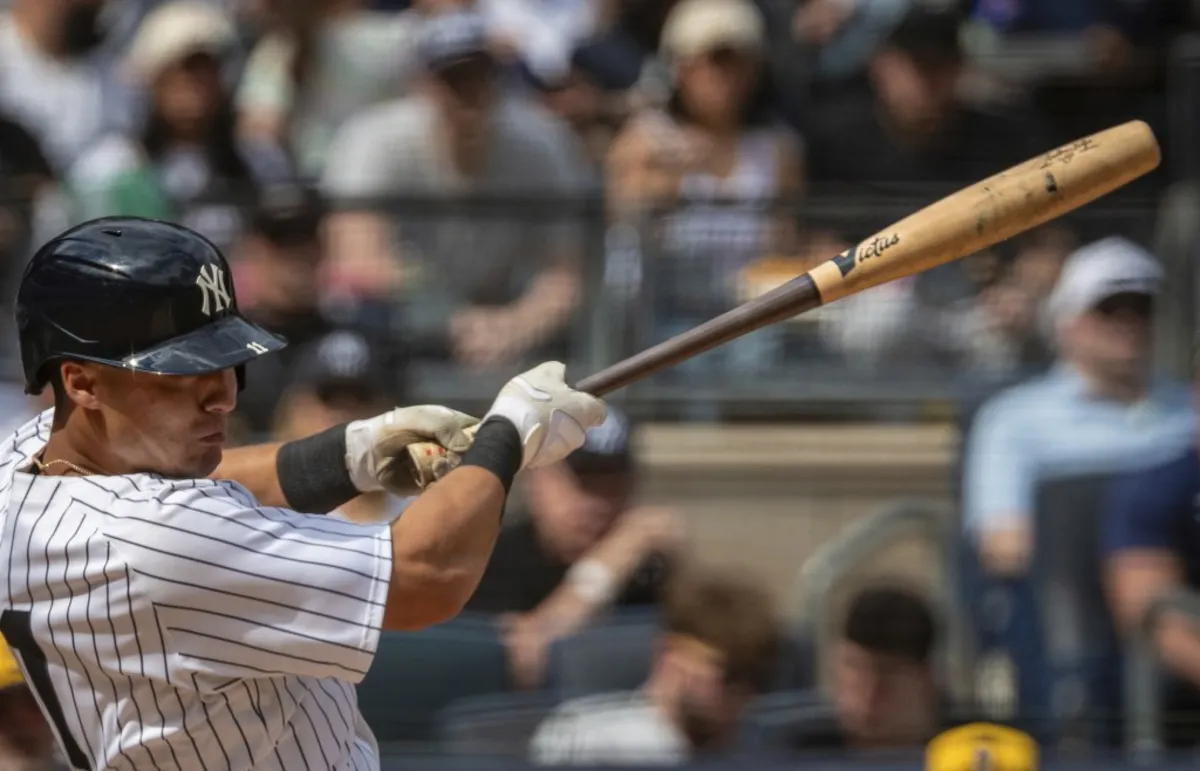
Brandon Lockridge, a player familiar with the latest developments in baseball equipment, has a keen insight into the controversial torpedo-style bats that have generated significant buzz after the Yankees’ impressive 15-home run game over the weekend. Lockridge, who has been swinging these bats during spring training sessions, recalls hearing the innovative ideas from MIT physicist-turned-Yankees-analyst Aaron Leanhardt. Despite experimenting with the torpedo-style bats, Lockridge ultimately preferred a more traditional model that he felt comfortable and successful using.
Lockridge remarked, “The bats were available to us. Some guys liked them; some guys didn’t.” His personal choice to stick with a traditional bat model reflects the broader sentiment among many players who are hesitant to switch to new equipment, particularly when their current performance is satisfactory. However, he acknowledged that the recent success of teammates might encourage more players to give the torpedo bats a try. “It’s interesting. I think you’re probably going to see a lot more guys swinging them with the success that those guys have had,” he added.
The concept behind the torpedo-style bats is designed to enhance performance by concentrating more mass where hitters make contact most frequently. While Aaron Judge notably hit three home runs using his regular bat, teammate Anthony Volpe utilized a thicker, torpedo-style bat to achieve his home runs over the weekend. These bats comply with MLB regulations, maintaining a maximum diameter of 2.61 inches at their thickest point. However, the critical factor for hitters remains the feel of the bat, which can vary significantly from player to player.
Padres designated hitter Gavin Sheets expressed cautious interest, stating, “It would be something I would look at in the offseason, when I had a lot of time to swing it and look at the numbers.” He emphasized that he wouldn’t immediately switch to the torpedo bat during games but is open to exploring its potential benefits. As of now, no players on the Padres roster have adopted this style of bat, and Sheets noted a general reluctance to change equipment without a thorough evaluation.
Manny Machado humorously commented during an ESPN broadcast, expressing curiosity about the torpedo bats while suggesting that the manufacturers should send some over for the Padres to try. Jake Cronenworth, another teammate, also showed intellectual curiosity, indicating he would analyze performance data before considering a switch. He noted that making changes in bat specifications can be akin to golfers customizing their clubs to fit their unique playing styles.
Lockridge explained that, based on Leanhardt’s presentations, the torpedo-style bats do not necessarily increase exit velocity but focus on improving contact. This approach is tailored to specific hitters, similar to how golfers have their clubs fitted to their swing preferences. Cronenworth pointed out that while variations of these bats have existed before, the current designs are more pronounced, featuring a significantly larger barrel diameter while still adhering to MLB specifications.
For pitchers like Jason Adam, the focus remains on the fundamentals of hitting. Adam, who transitioned from the Rays to the Padres, noted, “You still have to hit the ball. It’s only a huge story because of how the Yankees offense went off.” His remarks highlight the ongoing evolution of baseball equipment and the inherent challenges hitters face, regardless of the bats they use.
In other baseball news, former All-Star and Padres player Jurickson Profar was recently suspended for 80 games without pay due to a positive test for a performance-enhancing substance, specifically Chorionic Gonadotropin. Padres manager Mike Shildt publicly expressed his support for Profar, stating, “I love Jurickson Profar no more or no less right now than I loved him an hour ago.” Shildt emphasized his understanding of Profar as a person despite the controversy surrounding the suspension.
Profar issued a statement through the players’ union, expressing his deep respect for the game and his commitment to fair play. He noted the numerous tests he underwent last season, asserting that he had never intentionally taken a banned substance. Having signed a three-year, $42 million contract with the Braves, Profar made a notable appearance at Petco Park last week, receiving a warm welcome from Padres fans.
The 32-year-old Curacao native faced challenges last season, being released by the Rockies and subsequently signing a minor league deal with the Padres. He eventually returned to the team on a prove-it contract and had a commendable season, hitting 24 home runs and earning a spot in the All-Star Game. As the MLB season progresses, both the impact of innovative bat technology and player conduct will continue to shape the narrative of the league.